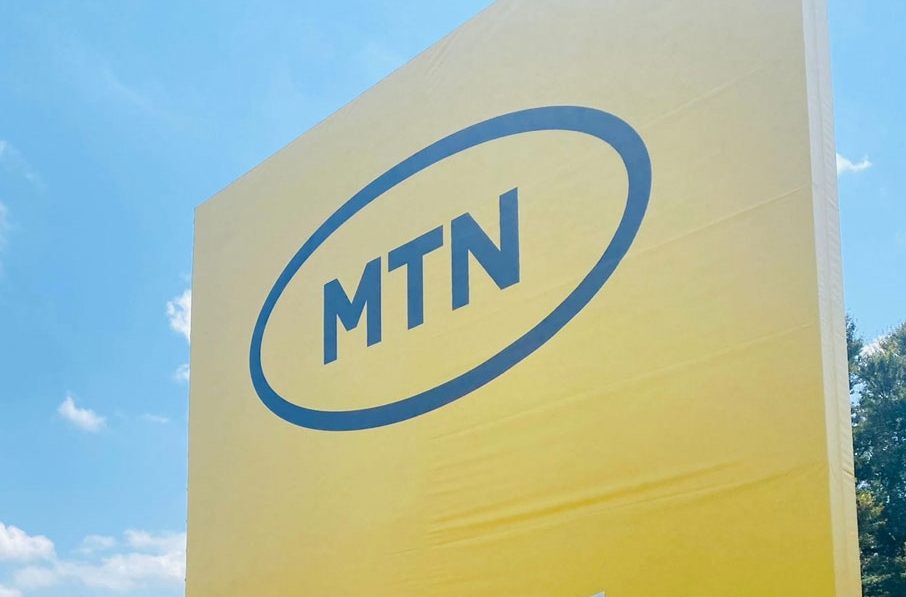Andrew Mori was born in South Africa, although his family has roots in Italy. He is the founder and CEO of Deimos, a cloud native developer and security operations company based in Cape Town, South Africa, with offices in Nigeria and Kenya, and plans to open more in Senegal and Ghana. Given the company’s mandate, its name obviously comes from space: Deimos is one of two satellites orbiting the planet Mars.
In this episode of My Life in Tech, I speak to Mori about his foray into cloud computing, the rather amorphous meaning of “the cloud” and his most surprising lesson as a startup CEO.
You studied computer engineering at university.
Yes.
Did you like it?
I really loved university.
What kind of student were you?
I managed to achieve several degrees that were focused on physics. I majored in theoretical physics, mathematics and computer science. I wasn’t very attentive at school. I wasn’t strong at mathematics. I didn’t apply myself as a young teenager. If I could go back in time, I would have spent my high school years a little bit more focused on academics than I did. I only came into my own in university. I was paying for every class [from my student loan], so I didn’t fail anything.
Do you want to talk about what it was like needing a loan for your education?
Absolutely. Not everyone has the same background and privileges in life. I have friends who didn’t need to take out student loans. But, for me, I absolutely needed some support. I couldn’t afford university; I took out expensive loans to pay for my tuition, and I supplemented that by working part-time. I was a little bit crazy; I ended up doing three degrees [up to PhD level]. It took a total of 10 years, and all of that was funded through student loans and working part-time.
How long did it take you to clear your student loans?
Six years.
How did you get into cloud computing?
The cloud didn’t exist when I got into computer science. I think I ended up being a partial expert on the cloud through being a computer scientist and software developer. A software developer builds applications, and they typically need to be hosted somewhere. And before the cloud, we used to host these applications on premise or on computers that sat in our boardrooms and data centres. As a developer, technical lead or engineering manager, there’s this mentality: “You write it, you run it.” Just because you’ve written the application doesn’t mean you just hand it over to someone; if you’ve built it, you typically own it, and that means deploying it, monitoring it, and looking after it, and making sure it doesn’t fall over.
Amazon Web Services typically built the first public cloud [in August 2006] and all of a sudden, there was this wonderful opportunity: you didn’t have to buy your own servers or build your own internal network team. You could simply rent it, pay-as-you-go, in the cloud. I was responsible for maintaining applications for many companies over the years, and that’s how I ended up in cloud computing.
What was your first job in computer science?
One of the first real jobs I got after university was lecturing computer science to students. And that quickly turned into me realising academia was not going to get me out of my student loan debt, and I’d better get a high-paying job. So, my first programming job was at a bank in the UK, building financial software.
The last time we spoke, you talked about public misconceptions about what the “cloud” means. From your explanation that day, it seems as though its meaning is still evolving. Where is that definition at today?
The main understanding of the cloud is that it’s a place for backups—backing up your emails or storing your photos. So, people who are not software engineers typically think of it as storage. In reality, it’s not just that. Many people interact with the cloud without realising it. While storage is a fundamental part of what the cloud is, the ability to serve requests from an origin server from a host application is the majority of what the cloud actually is. Whenever you Google something, or talk through Google Meet, or make a request to join a Zoom call, or you refresh Facebook, or search something on YouTube, all of those requests would typically resolve to a software application. And majority of the time, that software application is being served from the cloud, which means that application is hosted or being run in the cloud. That is the quickest definition of what the cloud is: a home or hosting environment for software applications to serve customer requests.
Are you saying everything we do on the internet is hosted and controlled in a concept called the “cloud”?
Generally, yes. I would say the data would speak for itself. In 2022, we will cross the boundary where more applications reside in cloud hosting systems than not in cloud hosting systems. There are still many financial institutions, government institutions, and other industries like manufacturing and healthcare that will still depend on what we call on local (or on-premise) data centres. But the reality is, the technology of the cloud is so far superior that, slowly but surely, all of those previously self-contained, self-hosted applications that were running on-premise will be migrated to the cloud. And that is a large focus of what Deimos does. Our job is to securely migrate a customer from an on-premise deployment to a cloud deployment.
You said earlier that the cloud did not exist when you started out in computing. Does this description override that earlier assertion? Has the cloud existed since the dawn of the internet, then?
The cloud came after the internet, when Amazon Web Services, or Amazon in general, decided to take their internal hosting and managed platforms and make them accessible to the public, hence the word “public cloud”. There’s different kinds of clouds. The clouds most of us talk about would be in reference to the public clouds, which are Microsoft Azure, Amazon Web Services, and my favourite, Google Cloud.
When did Deimos start?
June 2018.
What successes have you recorded?
I think the biggest success here is that we’re an incumbent. After four years of operation, we are the largest Google Cloud partner on the continent, which means we have the largest number of customers that we support on Google Cloud in Africa. And we have the largest reach. We’re operational in Congo, in Ghana, in Kenya, Nigeria, and South Africa, and we’re currently expanding to other regions. and that’s from a customer perspective from a staffing complement. We’ve managed to grow to around 100 employees, but we’ve done it in a sustainable way, in the sense that, you know, we didn’t take any investment from investors.
Another area worth mentioning is the calibre of customers that we’ve ended up collaborating and partnering with. We’ve worked with brand-new companies like TeamApt and older public organisations like the Central Bank of Nigeria. We work with publicly listed companies in the States and in South Africa, and with startups across the continent—with a fair amount of business in the UK.
Why are you helping companies migrate their applications and data to the cloud?
It boils down to the desire to help companies make smart technology decisions, and also to help African companies benefit from cutting-edge technologies like cloud solutions. Our company is focused on helping businesses make smart decisions, particularly from the cloud perspective. It’s imperative to note that migrating to the cloud, if done incorrectly, can be a very costly, difficult and demoralising experience. So having vast experience before starting Deimos, I can help companies mitigate risks. Deimos is assisting companies looking to modernise their software systems. Most people don’t realise that software requires maintenance and constant attention. Generally, companies want to improve their software applications, either because nobody can fix them or because the systems have loads of problems, or they don’t scale, or the user experience is bad. And Deimos exists to help that situation, whether it be a migration to the cloud, or a modification of systems. A lot of the time, we are simply listening to what the business goals are: what is the customer prioritising, and how do we make technology decisions that further those goals and directions?
So Deimos has had no VC investment yet?
There’s been no friends-and-family, no seed rounds, no private equity, and certainly no venture capital, at this point.
The company is profitable, then?
Absolutely. It was profitable from the first month…okay, maybe that’s overstating it. It was profitable in the first month because we didn’t pay anybody in the beginning! We didn’t pay the founders of the company salaries. But as soon as you start hiring [other] people you need to pay them, and that requires some profitability or some personal investment.
How many people worked at the company that first month?
We started with four people.
Do you have other co-founders?
I have one main co-founder, and that is actually my wife, Jana [Schoeman]. She is not full-time at the company and never has been, but has been absolutely pivotal in its creation, and identifying the opportunity and markets, and then being strategically involved in the company. But I do have actual co-founders, each of them in legal and engineering at the company. They are full-time and have been with us since day one.
Tell me more about Jana’s involvement in starting the company.
Sure, I’d love to. I really appreciate the interest. My wife and I worked in Nigeria for many years, and we both fell in love with the country. I was at a previous company, where I was engineering leader. When the company shut down, I started interviewing at multiple companies in Europe and America. I received multiple offers to join companies—healthy paychecks with stock options and lots of certainty around the role. But my wife encouraged me to take a risk and start something of our own. And I’m forever grateful for that. In terms of guiding operations, and in terms of guiding focus at the company, I wouldn’t be anywhere close to where we are right now if it hadn’t been for Jana. She’s a technologist, a user experience expert, a researcher, and she understands aspects of the African market.
Google recently announced the establishment of a data region in South Africa, its first on the continent. They’ll be working with Deimos on this. What exactly will you be doing with Google?
Deimos is a crucial partner in the Google Cloud ecosystem in Africa. While we have no direct involvement with the launch and operations of the three data centres that will form the new Google Cloud Region in Cape Town, we have the responsibility of working with some of the largest Google Customers in the region. This means we will be assisting our clients in terms of moving workloads from European regions to the new African Region. This is an opportunity to assist our clients by modernising their deployments through infrastructure as code (IaC). This helps with future migrations and recovery.
We will also play a key role in aiding more African companies in adopting Google Cloud. Deimos recently received the first Cloud Security Specialisation in Africa, a rigorous certification process performed by Google that uniquely positions Deimos as the leading cloud security partner for Google Cloud in Africa. Customers wanting to adopt the cloud and take security practices seriously can benefit from what Deimos has to offer.
In summary, Deimos will have no direct involvement with the creation of the cloud region, but will play a significant part in supporting and ensuring customer success when the region is live.
What challenges has Deimos faced these past four years?
We couldn’t have started a company at a worse time. We started Deimos and two years later COVID hit. Most financial advice would be: “Why don’t you save up six months’ costs, so if something goes wrong, you’ll have a bit of cushioning to prevent you from falling all the way down?” That’s a difficult thing to do, especially when you’re not engaging with capitalisation and investors.
When COVID hit, we had no money in the bank. We hear about companies extending runway—what’s your burn rate? how much do you have in the bank? how many months of runway? Being profitable negates all of that conversation. But being a bootstrapped startup company, a small business that’s about a year old, you typically won’t have made enough profit to have built up a buffer of six months’ costs. We certainly didn’t. That was probably the biggest challenge—servicing customers and the effects that COVID had on our customers.
Basic infrastructure has been a problem—internet speeds, electricity, the cost of fuel, and data. In Nigeria, SARS is harassing our staff, accusing them of online fraud. So these are things I hadn’t expected to deal with and overcome.
What is it about being a CEO and founder that has surprised you?
What was surprising was realising that even though I’m CEO, I can’t just do whatever I want. If you want to build a team that trusts you, that likes working with you, then you need to take everyone into consideration. Just because I’ve made a decision doesn’t mean it’ll happen; there has to be a buy-in.
My Life in Tech (MLIT) is a biweekly column that profiles innovators, leaders, and shapers in the African tech ecosystem, with the intention of putting a human face to the startups and innovations they build. A new episode drops every other Wednesday at 3 PM (WAT). If you think your story will interest MLIT readers, please fill out this form.






















